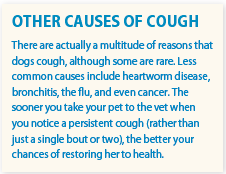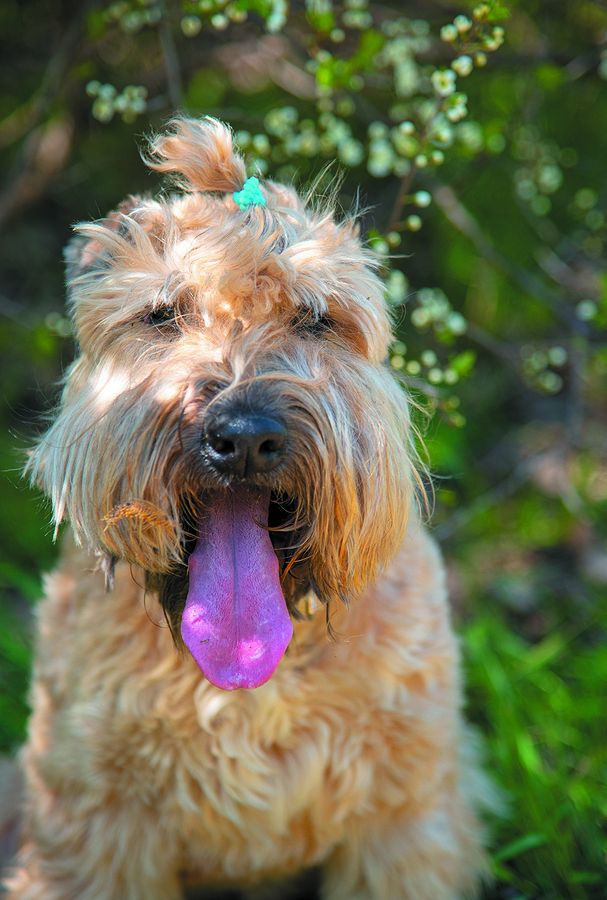Many dogs sometimes eat or drink so fast that food or water ends up going down the wrong “pipe,” and they make coughing or gagging sounds to try to expel it. But then there’s the chronic cough — the one that won’t go away. What is that about? There are a number of possible reasons. Here are the most common ones and what they sound like.
Heart disease.
Sound of the cough: Wet and phlegmy.
The heart is a pump. And when it does not pump properly, fluid begins to back up into the lungs. The condition is called congestive heart failure. It doesn’t mean the heart has failed outright, but it is failing. One sign can be a persistent cough. It’s the body’s way of trying to rid the lungs of the fluid. A cough can also develop in a dog with heart disease if there’s heart enlargement — not a good thing because it means the heart muscle is working harder to do its job and has enlarged as a result. The bigger heart can press on airways, stimu-
lating coughing.
Tracheal collapse.
Sound of the cough: Like a goose honk.
A collapsing trachea, or windpipe, makes it difficult to breathe properly. The collapse, or weakness, is in the section of the trachea inside the neck. That’s what causes the coughing. It tends to be an issue with toy breeds such as Pomeranians, pugs, and Maltese and Yorkshire terriers.
Kennel cough.
Sound of the cough: Dry, hacking.
What is commonly called kennel cough is an infection of the upper respiratory tract (as opposed to the lungs). It is highly contagious; therefore, the name “kennel cough.” But a kennel is actually one of the least likely places for a dog to become infected because reputable kennels require proof of vaccination against the disease before allowing a dog to board.
Pneumonia.
Sound of the cough: Wet, perhaps gargling.
Like heart disease, pneumonia can cause a buildup of fluid in the lungs. It is more apt to develop in a dog with a compromised immune system — either a dog with an underlying illness or a puppy or geriatric pet.
develop in a dog with a compromised immune system — either a dog with an underlying illness or a puppy or geriatric pet.
If your dog has developed a cough that just won’t quit, it’s important to take her to the doctor. In virtually all cases, the cause of the cough can be tended to and the dog will breathe easier. Often, but not always, the cough will be accompanied by
other signs — exercise intolerance, loss of appetite, and perhaps general weakness.





